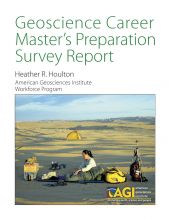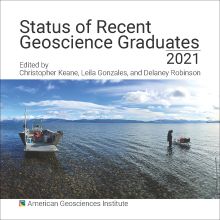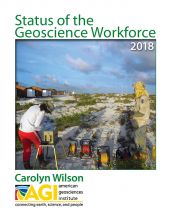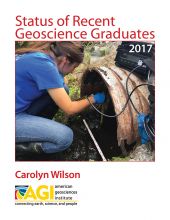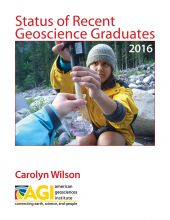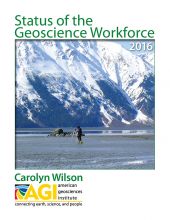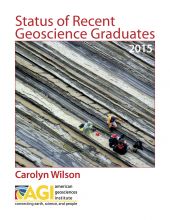Traditionally in the geosciences, the Master’s degree is the degree for employment and most likely to promote career growth within the profession. Current workforce supply-and-demand trends indicate a net deficit of 135,000 geoscientists in the next 10 years. The discipline is facing a harsh reality where closing the long-term workforce supply gap will only be possible by producing well-trained geoscientists with the appropriate competencies and skills-portfolios that meet the scope and depth of employers’ requirements.
Limited data exist regarding non-Ph.D. preparatory Master’s degree programs, particularly considering academic and career preparation, students’ career paths and advising and mentoring practices. Understanding how programs are preparing Master’s students for employment, how prepared students feel to enter the workforce and the alignment of graduates’ skills with workplace requirements is imperative for remaining competitive in a global geoscience market. Society increasingly relies on the work of geoscientists for energy, fresh water, natural resources, and safety from natural hazards and thus preparing high quality geoscientists to meet today’s demand is vital.
The American Geosciences Institute (AGI) and the Association of American Geographers (AAG) assessed the preparation of Master’s students and compared their preparation to what non-academic professionals indicated as the most important skills for geoscience occupations. The study was funded by the National Science Foundation, grant #1202707.
There are four main areas of inquiry:
- What are the motivations and career goals of Master’s students who pursue graduate study in geology and geography? What factors influence and inform these decisions?
- What entry-level positions are most commonly taken by graduates of Master’s programs in geology and geography?
- How satisfied are faculty and students with the curriculum, advising, and professional development opportunities provided by Master’s programs?
- What types of geoscience, geographic, and general competencies are taught and developed in Master’s programs? How prepared were cur-rent non-academic professionals in their field of employment when entering the workforce from their Master’s degree programs? What are the skills and competencies required of new hires in geology and geography employing industries, and how important are these to employment?
The Institutional Review Board (IRB) of the University of Colorado, Boulder provided approval for executing this research through the Association of American Geographers’ Enhancing Departments and Graduate Education (EDGE) Program.
This report disseminates information regarding these lines of inquiry about Master’s degree pro-grams, students’ career decisions, their preparation and influences, and non-academic employers’ preparation and current positions.

